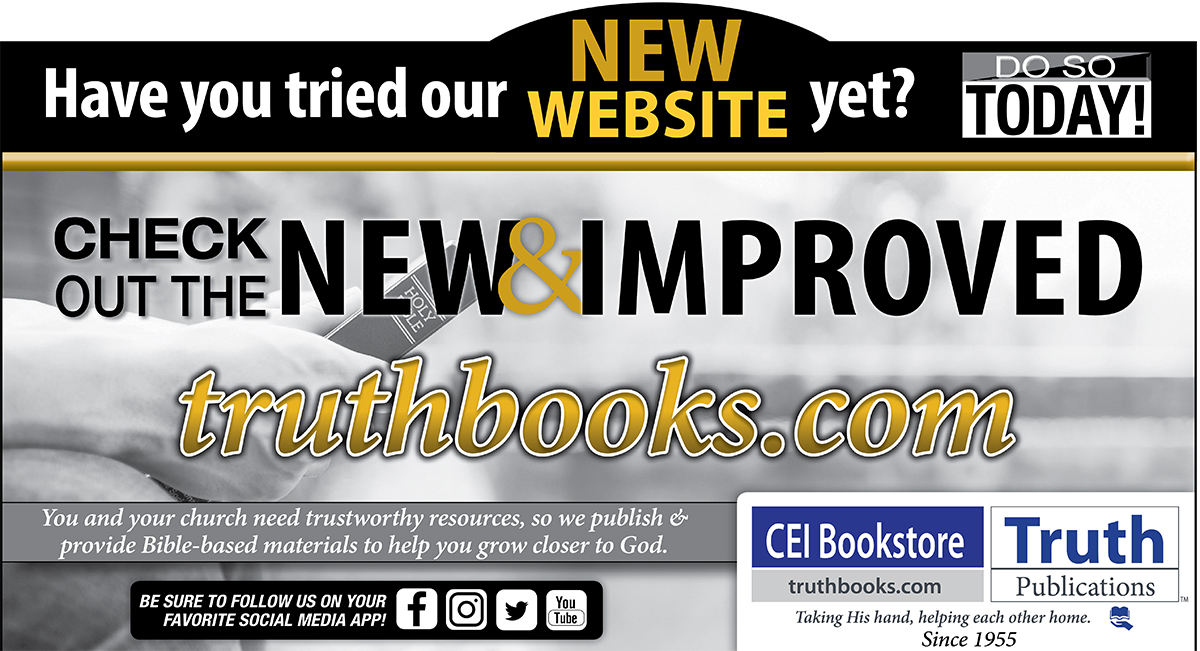

by Danny Linden
Synopsis: How can Christians effectively use the world of knowledge that is available on the internet without falling prey to misinformation or worse?
Over the last few decades, the internet has provided an unprecedented distribution of knowledge and access to information on every subject. We have amazing tools at our disposal, but there is much room for abuse. What should Christians consider when using the internet to do research or learn about a topic? How should we react to the headlines and links that are thrust toward us every day?
Not long ago, knowledge was distributed through formal channels that typically had restrictions on who could be involved. Books, newspapers, magazines, radio, and television had publishers, editors, and producers who were empowered to ensure that the quality and often the stance were in line with their standards. Of course, some did a better job than others, but most sources of knowledge and media outlets had more than one person involved in the process, and some level of rigor was applied. This arrangement developed, in part, because of the significant costs involved in distributing media widely. As technological advancements have lowered that cost, it has become easier for anyone to make his voice heard, regardless of the effort or attention used in the message.
Our access to information is now incredibly open. While some information is still sold in similar ways as it was in previous decades, more and more is now freely available online, including world and local news; specialized data on science, technology, economics, and medicine; scholarly resources; and in-depth explanations of technical information, including religion. A few decades ago, the first step for many with religious questions was to seek out a minister, priest, or other person believed to have specialized knowledge on the topic. A common alternative was to find a book on the subject. Today, the first step is often a Google search—and where will that search lead? We can certainly benefit from blogs, websites, social media, and other forums that allow us to learn from well-studied people, both near and far. But since distribution is so easy, we must be aware of how much low-quality or even inaccurate information is available.
The internet offers access to concordances, dictionaries, commentaries, blogs, sermons, articles, and many more resources that can be invaluable in our Bible study. Even the Bible itself is on the internet! If I want to compare multiple translations of a particular verse when I'm away from home and don't have a physical Bible with me, I can still do so from a phone or tablet. Christians in the early church might be jealous of our ability to read Scripture and easily access supplementary information when they had to go to great lengths to do the same. Yet, mixed in with this useful information is a lot of garbage.
When seeking knowledge on any subject, especially religion, consider that not all sources are equally valuable. Remember how trivial it is to be a content creator on the internet! The author of what you are reading or watching may be biased, misinformed, have a financial interest in getting you to agree with him, or motivated by more malicious intent. We must use discretion and wisdom in assessing the reliability of what we hear. For biblical matters, we know that truth comes from God, and the Bible is His authoritative word. When you hear a message that contradicts God's word, you must reject it, no matter who said it, how many followers and likes it has, or how polished the website may be. Never take anyone's word for it!
Google and many other sites track where you go and will serve you different ads and search results to match where you typically go or things in which you have an interest. So, I opened up a new search on Google with no connection to my current account. With a clean slate, I searched, "how can I be saved." What did I find? Google presented me with about 1.38 billion results, lending credence to the claim made earlier about the sheer number of voices on any given topic. However, most people only look at the first page of search results. Here's what came up for me, at least on the day that I searched:
All these came from the first page of my search results and could be accessed by anyone with this common and basic question. Yet, notice that all of these answers are either wrong or incomplete. Only by carefully studying Scripture will we see what God has done for us and what He requires us to do in response. This same effect is magnified as the complexity of the issue increases.
While this article has not spent much time addressing secular knowledge, the same phenomenon is also present. Christians are to be wise as serpents and harmless as doves. Part of that means that we should not accept what we read or watch at face value! Anyone can put anything on the internet, and we have no way of knowing whether that person is who he says he is or if his intentions are pure. Be especially aware of outlandish claims that are often presented without evidence or anything that elicits a strong emotional reaction. The goal of many sites is not to be truthful, but to goad you into clicking so that they can make ad revenue. May God bless us with wisdom and discretion as we access the world of knowledge that the internet provides.
Author Bio: Danny begins working with the Santee church of Christ in Santee, CA this month. He previously labored with the Northside church of Christ in Del Rio, TX for over five years. He and his wife, Lauren, have two children. The church website is santeechurchofchrist.org. He can be reached at danny@dannylinden.com.
